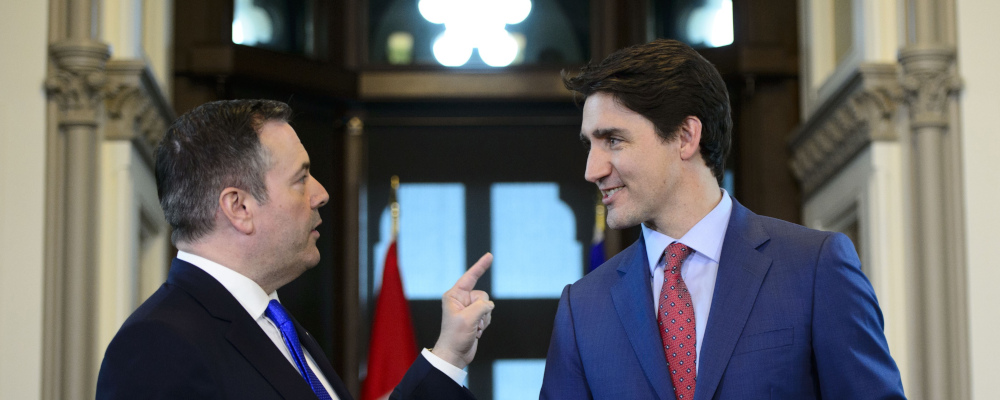On Valentine’s Day 2018, then-Minister of Environment and Climate Change Catherine McKenna stood in the House of Commons to explain how Bill C-69 would “restore public trust in how the federal government makes decisions about major projects, such as mines, pipelines, and hydro dams.”
“These better rules are designed to protect our environment while improving investor confidence, strengthening our economy, and creating good middle-class jobs,” she said.
The Impact Assessment Act would not only undo the environmental protections “gutted” by the Harper government, but it would consider “health, social, gender, and economic impacts over the long term as well as the impacts on indigenous peoples,” McKenna added.
Alberta Premier Jason Kenney fumed, branding C-69 the “No More Pipelines Bill.” It passed in 2019.
The hubris was stunning. Ottawa had arrogated to itself a veto over any large project, regardless of whether it crossed provincial boundaries. It would consider exercising that veto if it decided a project was “not in the public interest” based on factors ranging from “the intersection of sex and gender with other identity factors” to “Indigenous knowledge provided with respect to the designated project” to “the extent to which the designated project contributes to sustainability.”
Ottawa claimed to locate the authority for this veto in a handful of sections of the Constitution Act, 1867 including its powers to regulate “Indians, and Lands reserved for Indians,” “Sea Coast and Inland Fisheries,” and the Peace Order and Good Government of Canada (POGG).
In a 5-2 decision released Friday, the Supreme Court of Canada rejected Ottawa’s monumental power grab, thanks in part to arguments made by the charity that I work for, the Canadian Constitution Foundation.
The decision is great news for anyone who wants to see more large projects like mines and highways get built. But it’s even more consequential than that. Had the decision gone the other way, it would have posed an existential threat to the unity of Canada, which is held together by the wisdom of a constitutional division of powers that leaves many big decisions to provinces.
Chief Justice Wagner’s decision correctly found that the Act was not in pith and substance aimed at regulating effects within federal jurisdiction but, rather, was aimed at regulating entire projects even where they are mostly in relation to provincial jurisdiction.
It should have been obvious from reading the Act that the federal government cannot use its power to regulate fisheries to veto an Alberta oilsands mine, or use its power to regulate migratory birds to block Ontario housing and highway construction, as environment minister Steven Guilbeault has threatened. That’s because section 92 of the Constitution Act, 1867 gave provinces the exclusive power to regulate “Local Works and Undertakings” and section 92A, added by amendment in 1982, gives provinces the power to regulate non-renewable resources and energy.
But that didn’t mean a victory was certain. This is, after all, roughly the same Supreme Court that found just two years ago that Ottawa can impose a carbon tax on provinces using its POGG power because climate change is supposedly an “existential threat.”
Now the federal government has no choice but to accept that it can’t block most projects, and provinces can once again assert their jurisdiction over those matters that the founders of this country—who were, let’s not forget, leaders of provinces—refused to give up at confederation.
Provinces only gave up jurisdiction over those things that a federal government was in a better position to do. That includes defence, matters that can facilitate free trade like currency and the postal service, and things like railways that no single province could achieve on its own.

The risk Canada had faced had the ruling gone the other way was a dangerous scenario in which Ottawa had been given the greenlight to illegally usurp jurisdiction over decisions that our founders had wisely left to the provinces.
Had they ruled the other way, the citizens of Quebec or Ontario, who, let’s face it, currently control the federal government, would have been able to overrule the citizens of Alberta or Saskatchewan whenever Albertans and Saskatchewanians chose to develop their resources.
Likewise, had they ruled the other way, the citizens of western provinces, who are likely to form the largest bloc of MPs in a future Conservative government, would have been able to call the shots on projects that the constitution had wisely left up to Quebec and Ontario.
Exercising this federal veto would have almost certainly reignited dormant separatist movements in Quebec and Alberta, and the separatists would have had a more convincing argument than ever: if the federal government doesn’t need to respect the constitution, why should we?
The Supreme Court’s decision has helped us to avoid that existential threat.
Recommended for You

Crystal Smith and Eva Clayton: Indigenous natural resources development is an efficient, fair, and responsible way to advance economic reconciliation

Peter Menzies: Justin Trudeau’s legislative legacy is still haunting the Liberals

Michael Geist: The government’s stunning new assault on Canadians’ privacy

Need to Know: Sick of wildfire smoke? Blame the B.C. government



